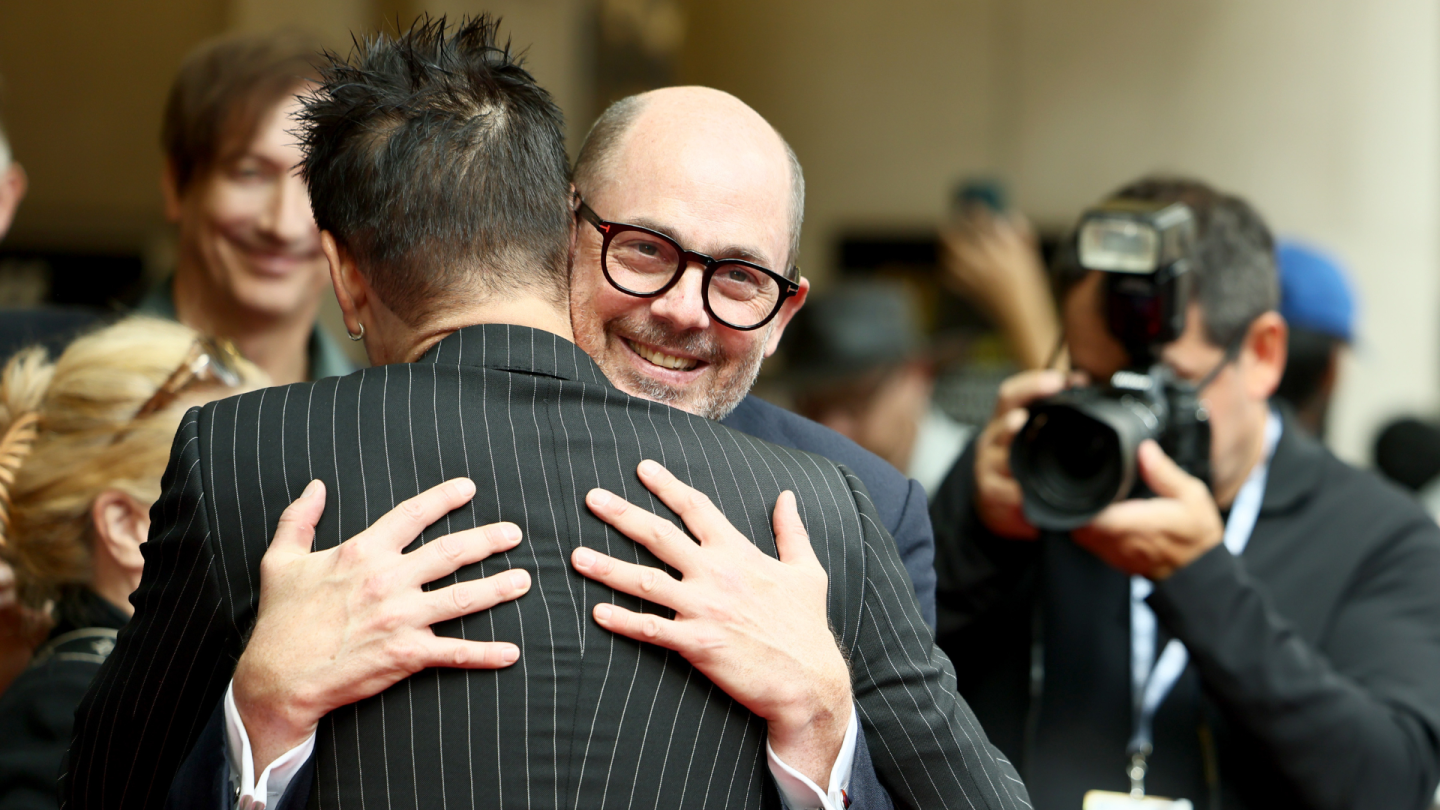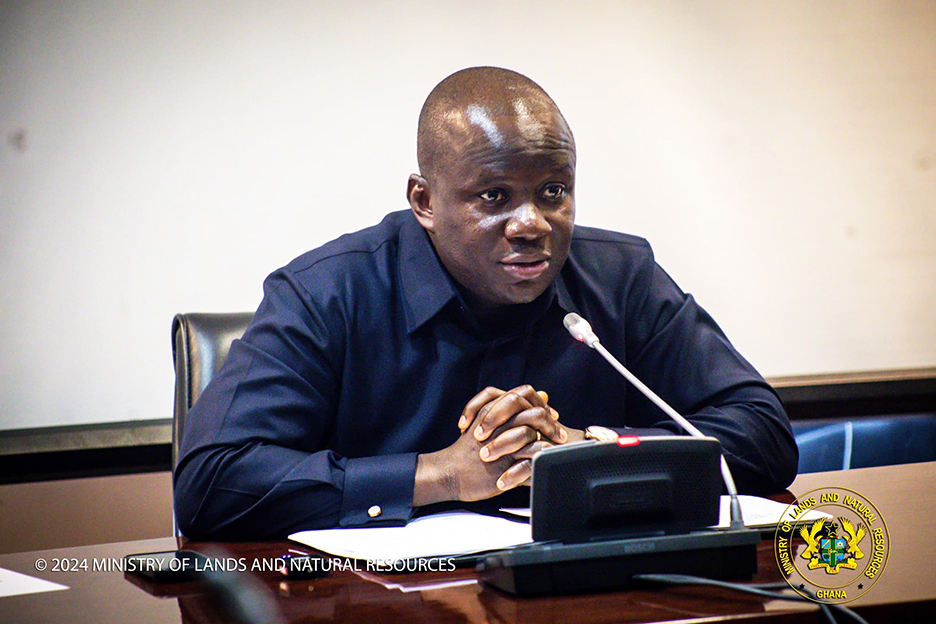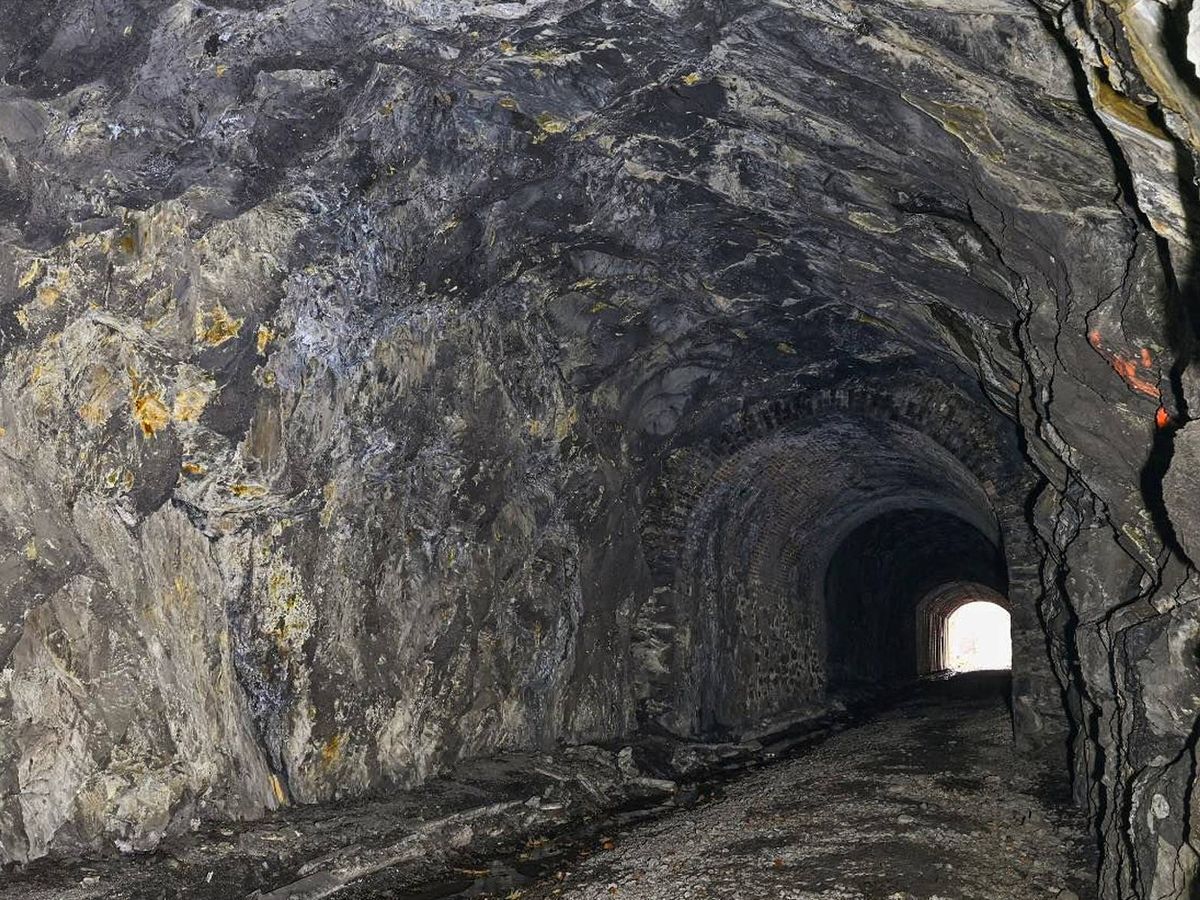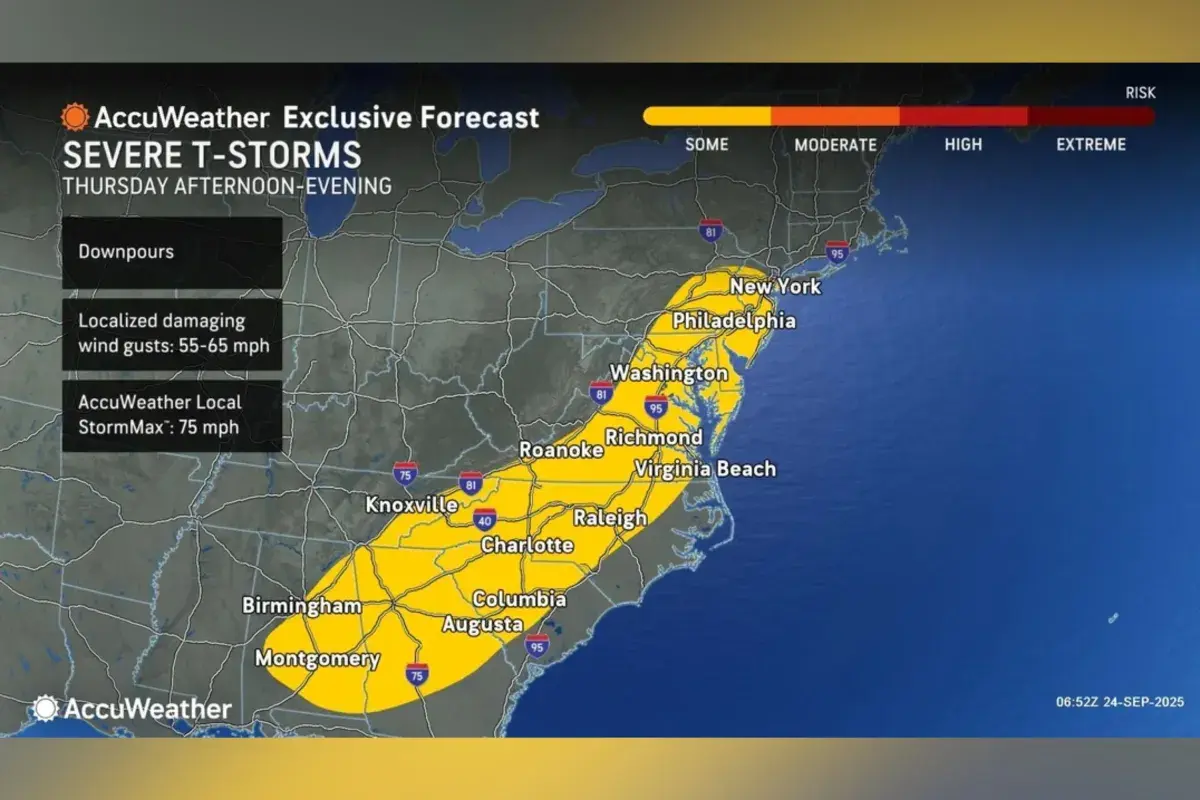
Edward Berger‘s on quite a roll and he knows it.
The Swiss-Austrian filmmaker, an Oscar winner for his 2022 World War I movie All Quiet on the Western Front, has racked up some real A-listers since finding himself on the receiving end of awards acclaim.
You’ll likely know him as the director behind the hit Vatican drama Conclave with Ralph Fiennes, which took in $128 million at the global box office, earned eight Academy Award nominations (including best picture) and won Peter Straughan best screenplay earlier this year. His next movie, The Riders, is set to kick off shooting in February with another Hollywood heavyweight, Brad Pitt. “I don’t want to be analytical about my life,” Berger begins, “but if I look at All Quiet and Conclave, [they] brought about a world of abundance and luck and opportunities. Lord Doyle is in a similar situation.”
He’s referencing the role of Colin Farrell in his newest project, Ballad of a Small Player, an adaptation of Lawrence Osborne’s 2014 novel. The Netflix movie had its world premiere at Telluride and screened at TIFF, and now comes to San Sebastian to delight European audiences for the first time.
“He is in a world of abundance, be it steak or lobster or cake or champagne,” the filmmaker continues about the commonalities he found between his protagonist and Berger’s own journey in recent years. “He ultimately has to find a small haven of peace… And not to be pretentious, but it’s not too dissimilar to the opportunities or choices that I was gifted with after Conclave. Then, I felt it’s very important to stay focused on yourself and stay true to the films that call to you.”
It’s fair to say Ballad called to Berger. The film follows Farrell as Lord Doyle, a British aristocrat with an insatiable appetite for gambling. But when his past — and enormous debts — begin to catch up with him, Doyle meets a kindred spirit who might just hold the key to his salvation. Fala Chen stars as Dao Ming, a fellow lost soul, and Tilda Swinton as hired investigator Cynthia Blithe.
“The film, for me, is a pop opera,” adds Berger. “Macau is so over the top, it’s so loud, it’s so colorful, the fountains are bigger, the music is popular. Everything is more and more and more and more and more. That needed to be part of the language and the grammar of the film.”
Below, Berger reveals how he gauged the interest of Irish star Farrell as they met for the first time in a London sauna, his familial San Sebastian connection that keeps him passionate about the success of the Spanish film festival and why directors have a “responsibility” to take their projects on the festival circuit: “Moviemaking is not made for us, it’s made for the audience, and the festival is the first audience.”
I spoke to Mike Goodridge at Good Chaos recently, and he mentioned how he came to you quite a while ago about Ballad of a Small Player. He expressed his worry that through All Quiet and Conclave you might get pulled away from this film. But you really stuck with it, which he was very grateful for. Why were you so motivated to make Ballad?
When you attach to films and develop them, you put a lot of heart into it. You just put time, heart and soul into it, and especially into this script, I found it to be a very soulful project. [It] isn’t defined by things like plot or action, but a journey of the soul of its main character. For some reason — and you can’t plan this — the movie fell into my life at the right time. I made All Quiet and as a reaction to All Quiet, I moved to Conclave. And this is almost a reaction, almost blowing up the previous film [Conclave] that was architectural and mathematical and very precise and orderly. [I moved] to another film of precision. But instead of the architectural building, I went into an operatic building. [Ballad], for me, is a pop opera.
Let me try to define it. First of all, I love the contrast between the fragile soul that is Colin Farrell’s character, Lord Doyle, who’s hiding in this absolutely over the top place that bombards him. That dichotomy was really interesting to me. On another level, I don’t want to be analytical about my life, but if I look at All Quiet and Conclave, [they] brought about a world of abundance and luck and opportunities and so forth. Suddenly you’re faced with a world of abundance and there’s a possibility to lose yourself in these choices. Lord Doyle is in a similar situation. He is in a world of abundance, be it steak or lobster or cake or champagne. And he takes it all and none of it fulfills him. He ultimately has to find a small haven of peace in this world of abundance. And not to be pretentious, but it’s not too dissimilar to the opportunities or choices that I was gifted with after Conclave. Then, I felt it’s very important to stay focused on yourself and stay true to the films that call to you.
I can imagine, in the wake of Conclave, you were inundated with choice. How would you describe the projects that are calling to you now?
It’s so diverse, just because I tend to imagine a film like a conversation that you have with yourself and other people for years and years and years and years, and then you’ve explored that subject, and you run out of things to say — you’ve said everything. Then you think, “I want to talk about the opposite, about the stuff that I don’t know anything about.” So what draws me to the films? It’s not things that I know a lot about — not necessarily subject matter, it could be style, feeling, genre. And I go, “I don’t know how to do this. I want to learn and I’m going to try and explore that world.” So it draws me in that direction.
And I would say, while Conclave, All Quiet and Ballad might look very different on the surface or feel very different, they do have a common thread. First of all, they’re all told from a narrow first-person perspective. I really dive into that person’s mind and feeling and try to make you feel what they feel. I try to grab you by the collar and drag you through the mud, through the Vatican or through Macau, with that character and make it a very visceral, physical experience. [I] make you feel what they feel and make you identify with them, no matter how hard they are to identify with. Colin’s not an easy character to identify with. He’s a liar, a thief and a fraud, as he says, but I want you on his side, and Colin helps me on that, because we love him so much. So [my films] are all told from the first-person [perspective]. They all look for some kind of liberation or peace. Felix [Kammerer] finds it in death in All Quiet, Ralph [Fiennes] overcomes this crisis of faith [in Conclave] and Colin finds a small haven of peace in a world that is so upside down and so loud and vibrant and colorful that it’s very hard to find it.
And with that first-person POV, how crucial is casting and how much say do you have? You’ve recruited some amazing talent across your films. Had you worked with Colin before?
No, I hadn’t. I actually met him at the BAFTAs, in the sauna of the hotel. He sat in there first, and I just walked in, said, “Hey, Colin, I’m Edward.” We kind of knew each other. So we started talking, and I told him about this project. But I think casting is crucial, no matter what the film is… It’s 90 percent of the movie. If you don’t cast right, then you really have a problem. I’ve been truly blessed with wonderful actors that gravitated towards the scripts that I loved. I guess Ralph and Colin were the first English-language [films I did] so more stars than the people I’ve worked with [before] — international stars — and I learned so much from them. It’s wonderful to see them, to be behind the camera and see the absolute generosity towards others, in terms of giving emotionally to their fellow cast members or to their crew, to the absolute willingness to be vulnerable, the absolute dedication to their craft, to their job. It’s a miracle to witness and it’s a wonderful. It’s a really big gift.
I feel like only Colin could have done Doyle justice, that unique charm.
Yeah, that’s exactly right. If Colin had said no I might have had to put the film to the side. You asked about my say in it. It’s my choice. Obviously the financier, or Netflix in this case, needs to feel secure about their investment and make sure that this person is not a complete unknown, but they feel comfortable with this choice. Moviemaking is so much risk, for the filmmaker, but especially also for financier. So there are certain pillars that you need to make the movie happen and Colin is certainly one of them. There needs to be a certain status that this actor has but of the people that have that [status], I would say Colin is the only one [for the role]. First of all, just watch The Penguin. He has a pound of makeup or prosthetics on his face and still, I feel the vulnerability of this guy through his eyes. That must be so difficult to achieve. And the same for Lord Doyle, he really opens his heart and lets us into it and makes us identify with whatever he’s going through.
I loved Dao Ming in this film as well. She carries this aching pity for Doyle. What is motivating her to help him?
She says it in the beginning [that] she recognizes his vulnerability in his eyes. She says he’s a lost soul, like she is. So she recognizes herself in [him], in my interpretation. She’s pretty much a low point in her life, and she sees him at the low point of his life, and she thinks, “I want to go, but maybe I can help this gentleman and help him not go.” It’s the lost soul that she sees.
We’re talking ahead of the San Sebastian Film Festival. I was there last year and it was the first time I saw Conclave! I remember as you left the theater after the screening, everyone was applauding upon your exit and you were filming it on your phone. I wanted to ask about your personal connection to San Sebastian and why the festival circuit is so important to the film industry.
First of all, San Sebastian is a very important festival. You watch great films there that come from all over the world, there’s a director with great taste and a selection committee that selects wonderful films. So I get the opportunity to watch those films, and that’s great. Secondly, San Sebastian is a beautiful countryside with amazing people and amazing food. Thirdly, I have an old family connection to [Spanish sculptor] Eduardo Chillida, who has a lot of work there. It’s a connection that I cherish very much. Whenever I go, I go see his sculptures by the ocean and in the studio.
Fourthly, people stay for the film and they applaud if they like it, and they really support you. It gives you not only a boost of energy, but it launches the film. That’s the wonderful thing about these releases. This is where the word of mouth starts. One journalist sees it and writes about it. Another one says, “Oh, that sounds interesting. I gotta go watch this.” The mother talks to her daughter… This is where it spreads. So we as filmmakers, I think, have a responsibility to travel to these festivals and seek the exchange with the audience and present it. And by the way, it’s nerve wracking to present it to the audience, because every time, every screening is different. Every culture is different. Every culture is going to perceive the movie differently. Conclave played so differently in different countries because of Catholicism or religion. It was so interesting to see, to experience the different nuances. And Spain was beautifully receptive to the film. It’s wonderful to see also with Ballad, how even in Telluride or Toronto, there are different reactions from screening to screening. I think it’s a massive opportunity, but also a responsibility for us. Moviemaking is not made for us, it’s made for the audience, and the festival is the first audience.
What are you working on next?
I’m working on a movie that’s called The Riders. I’m shooting it in February, and it’s basically a story about a man who builds a house or renovates a house in Ireland in the ’80s for his family that’s about to come. And he picks them up from the airport. But only the daughter arrives. The mother is gone. His wife is gone. She’s left him. He takes the daughter, and he basically looks around Europe to find [his wife], in Greece, Amsterdam, Brussels. And eventually he finds a trace of her. It’s a movie I’m doing with Brad Pitt in the lead.
You’re smashing through the A-list with Ralph, Colin, now Brad. Everyone wants to work with Edward Berger.
You still need a good script. The wonderful thing with Brad, he was so open and interested and eager. I sent him the script, we talked a couple times beforehand, he read it in two days and it was a done deal.



